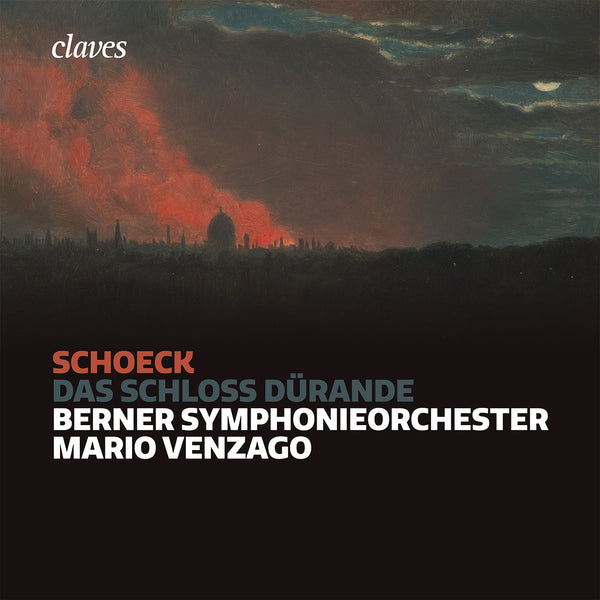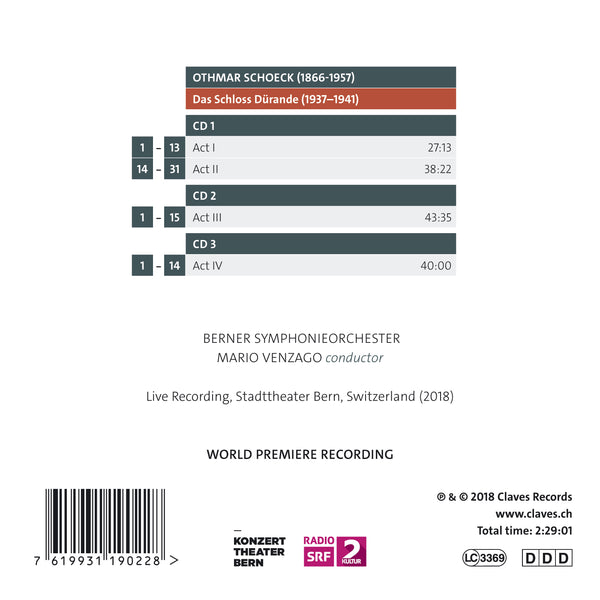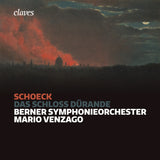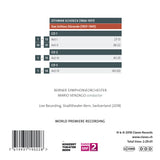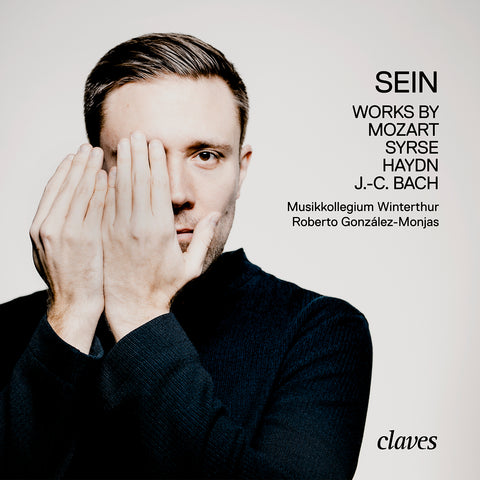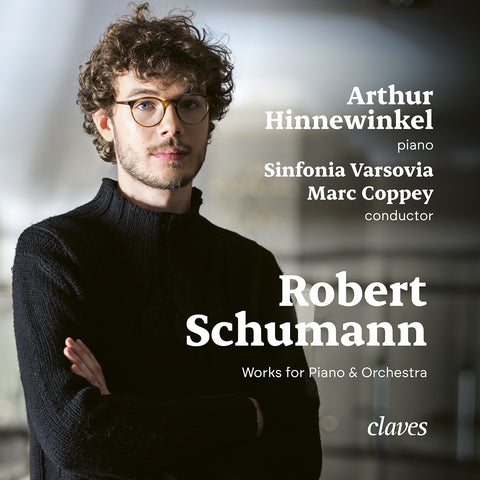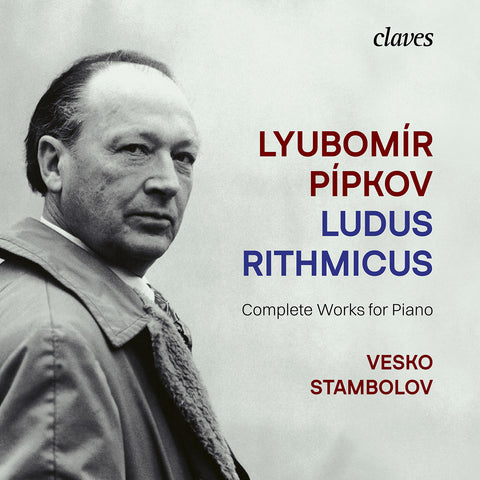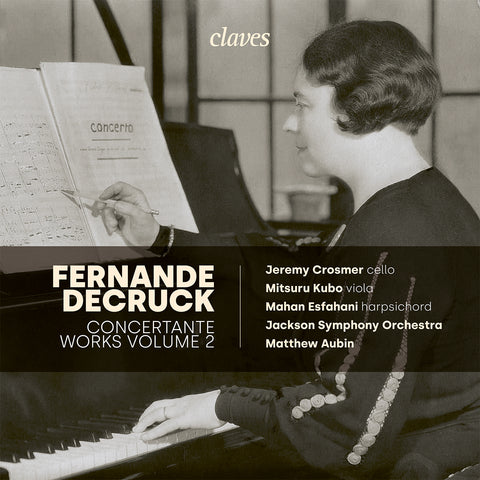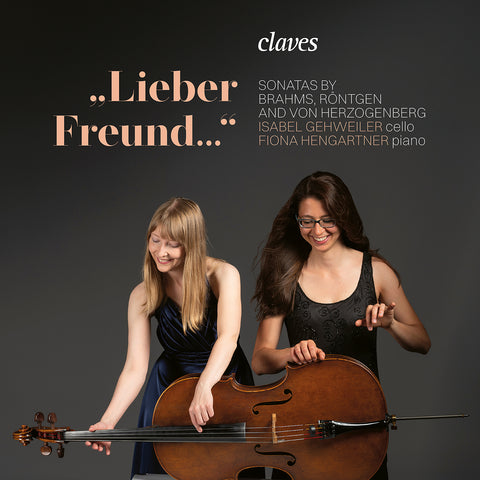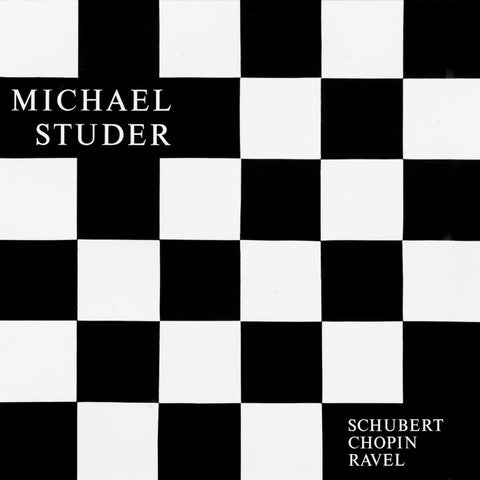(2019) Othmar Schoeck: Das Schloss Dürande
Category(ies): Oper vocal Rarities
Main Composer: Othmar Schoeck
Orchestra: Berner Symphonieorchester
Conductor: Mario Venzago
CD set: 3
Catalog N°:
CD 1902-04
Release: 08.02.2019
EAN/UPC: 7619931190228
This album is now on repressing. Pre-order it at a special price now.
CHF 35.00
This album has not been released yet. Pre-order it from now.
CHF 35.00
CHF 35.00
VAT included for Switzerland & UE
Free shipping
VAT included for Switzerland & UE
Free shipping
This album is now on repressing. Pre-order it at a special price now.
CHF 35.00
This album has not been released yet.
Pre-order it at a special price now.
CHF 35.00
CHF 35.00
OTHMAR SCHOECK: DAS SCHLOSS DÜRANDE
*** ICMA 2020 Finalist in Opera category ***
World Premiere Recording
This reworking of Das Schloss Dürande aims to restore to the international operatic stage a significant opera of late-tonal Modernism that in the long term will have to find its own way into the repertoire alongside the works of Richard Strauss, Leoš Janáček, Franz Schreker and Alexander Zemlinsky.
Its late-Romantic style, which is common to the “lyrical” Schoeck of the songs and the “dramatic” Schoeck of the opera Penthesilea, here explores the very boundaries of what the idiom would allow.
At the same time, both these aspects of his oeuvre are so closely interwoven that the result in Dürande – which we are now able to rediscover for ourselves – is wholly autonomous and appropriate to its subject, almost postmodern in conception, and still capable of sweeping us off our feet today.
Thomas Gartmann
***
Das Schloss Dürande (1937–1941)
Opera in four acts after a novella by Joseph von Eichendorff
New version (2018) of Hermann Burte’s original libretto by Francesco Micieli making free use of texts by Joseph von Eichendorff
Musical adaptation: Mario Venzago
In collaboration with a research project of the Bern University of the Arts (HKB) under the direction of Thomas Gartmann
The recast of the Librettos has been made within the framework of a research project of the Bern University of Arts supported by Swiss National Science Foundation, the Canton & City of Bern, SWISSLOS/Kultur and the Scientia & Arte Foundation.
***
The Conductor's thoughts on the present CD
It goes without saying that this opera – given the stigmatising circumstances of its genesis and its performance history as described above – cannot be performed again in its original form. I made an initial, somewhat half-hearted attempt at radically excising Burte’s makeshift rhymes and dramaturgically trite text from the score, leaving just the music behind.
And it was only then that I recognised the impact of the music, its power and immediate sincerity. I also grasped that Schoeck had obviously composed his music over long stretches before even getting the text from his librettist. Without the text, without any words, the music itself tells the story of Eichendorff’s novella in a compelling, unambiguous manner. I also recognised those passages where the composer had been compelled to extend his phrases and patch together bars in order to accommodate Burte’s laborious verses more or less creditably.
These joins have remained so visible that we can open them up again without damage to the musical substance, and then with a certain amount of skill we can simply let the new verses flow into the music – without Burte’s excrescences. When I listen to the performance documented on this CD, I experience just what I had so very much hoped for: the almost addictive rapture of the great Othmar Schoeck, with his visionary voice. This work is undoubtedly one of the most extraordinary to have ever come from his pen.
In fact, it’s really his unspoken magnum opus. As in his other works from the war years, he continues to employ a musical vocabulary here that was already long out of date, if not in fact obsolete. We find much that is tonal and familiar, but so passionate and cleverly packaged that it doesn’t just come across as utterly authentic and appropriate, but also as exciting, new, and deeply modern. Either way, it’s unique!
This CD is essentially the second step of an unparalleled project that was initiated by the Bern University of the Arts. In his book “Zurück zu Eichendorff!” – Zur Neufassung Othmar Schoecks historisch belasteter Oper “Das Schloss Dürande”, Thomas Gartmann offers a meticulous documentation of the whole process of restoration, so that everyone can judge for themselves if it has been a success – ethically, morally and artistically. Because in this second step, our concern is solely the music that everyone can now assess in its new context. It was our aspiration to present this ecstatic, richly colourful score on this CD as closely as possible to how it sounded at its recent world première.
So we have made hardly any edits, and engaged in no recording “tricks” at all. The singers mastered their task magnificently, and any little irregularities in their diction have been left untouched here. It is the listeners who will ultimately have to decide whether the implicit final step of our experiment can be undertaken: which is no less than the reintegration of Das Schloss Dürande into the operatic repertoire.
***
The Plot
ACT 1
Armand, the young Count of Dürande, and Gabriele, the sister of the Count’s hunter Renald, are secretly in love with each other. However, Armand keeps his identity secret from her because he wants to be loved for who he really is, not for his title. Renald and a gamekeeper surprise the two lovers during their evening tryst. Armand is able to flee, despite Renald shooting at him in his rage. Instead, the bullet grazes Gabriele’s arm. But as he flees, her lover leaves behind his own pistol. Renald finds it, and realises the identity of its owner on account of the coat of arms engraved on it: it’s Count Armand. He fears for the innocence of his sister, and – given the difference in their class – he assumes that Armand’s intentions are dishonourable. So he insists Gabriele should retire to the nearby convent.
They intend travelling there first thing in the morning. But Gabriele sets off on her own during the night. The Prioress is her aunt, and Gabriele hopes she might offer her help. The next morning, Renald finds her bedroom empty. He hears the sounds of the Count out hunting with his men, and curses him and all his family.
ACT 2
On her way to early morning service, the Prioress discovers Gabriele, who has just arrived, exhausted. She is delighted to see her niece and takes her in. Later, Renald too appears, in turmoil. He implores the Prioress to protect Gabriele from the attentions of the Count as best she can. The cheerful hustle and bustle of the nuns and vintners working in the vineyards is briefly interrupted when Count Armand rides into the convent courtyard at the head of a small delegation. As is the custom, he is here for the first taste of the new communion wine. He now reveals himself to Gabriele. Their happiness lasts just a few moments, because Armand has to set off for Paris, where duties await him over the winter. Gabriele assumes the clothing of a young man and sets off in disguise to be near Armand in secret.
After Armand’s departure, the old Count appears at the convent, just at the climax of the wine festival – he is the feudal lord of all here. Renald furiously accuses him of letting his son Armand set off for Paris where he intends – so Renald is convinced – to keep Gabriele as his whore. Renald’s behaviour merely serves to marginalise him more and more, while the old Count smugly looks on as he rages.
At the peak of his fury, Renald conjures up a vision of a new era that will change everything. The festivities close raucously.
ACT 3
In a pub in Paris, an agitator is urging the rabble to rise up against all authority. Renald arrives in the midst of this, and asks after his sister – he assumes that she is with Count Armand. They all laugh at him. A corrupt lawyer offers him his services. When the police arrive, the pub empties promptly. Renald has ceased to understand the world, and now even Nicolas, the white-haired servant of the old Count of Dürande, suddenly appears in the pub. They hear Gabriele, singing in the distance. Renald wants to run out to follow her voice, but Nicolas holds him back on account of all the policemen on the streets. “You too are a traitor!” cries Renald, and disappears into the night.
Buffon, the publican, has meanwhile been preparing a corner table of his establishment for the discreet rendezvous of an aristocratic couple. Gabriele suddenly turns up, dressed as a boy. She is only just able to hide when Countess Morvaille arrives – she is known throughout the city, and is a typical representative of the ancien régime. On her arm is Armand, the young Count. She urgently tries to make him aware of the desperate political situation, and challenges him to resist. But Armand is weary of all public activities. He only wants to live for the girl he loves, whom he imagines is still far away. The Countess – resigned and disappointed – gives up her efforts.
Now Renald storms in. He has been searching in vain for Gabriele. He takes Armand to task, but nothing is solved because Armand truly does not know where Gabriele is, and feels insulted by the huntsman’s accusations. Despite the intervention of Nicolas, the argument ends in fierce fisticuffs and a swordfight. The police are called, arriving in a trice, and promptly take Renald away with them.
From her hiding place, Gabriele helplessly follows everything that happens. She assumes that Armand is having an affair with the married Countess, and in a mixture of despair and jealousy she rails against her lost happiness. She is also desperately concerned about her brother in custody.
Nicolas knows of the dangers that lurk all around the pub, so swiftly leads Gabriele away from her hiding place. The noisy hordes have meanwhile freed Renald, and swear eternal brotherhood. Fired up by their revolutionary fervour, Renald in his blind rage leads the murderous rabble away, back to Dürande Castle.
ACT 4
Back in the Castle, the old Count is living an existence divorced of any connection to the outside world. He browses through old chronicles and performs a gallant pantomime while his huntsmen watch on in amusement. Nicolas announces the arrival of Countess Morvaille – she has just arrived from Paris after an eventful journey, and is out of breath. She begs the old Count to stand up against the mob. But he expresses regret at no longer having the strength for it, and sings of past happiness. When the Castle is finally surrounded by the revolutionaries, firing as they come, he wants to take up arms one last time – but the excitement causes his heart to stop, and in his ecstasy he falls to the floor, dead. The nuns are driven from their convent, and as they pass they bless the old Count; Morvaille flees with them.
Everyone else has meanwhile also arrived back from Paris. But Armand comes too late to be by his father’s side when he dies. The battle for the Castle becomes ever more ferocious. In the midst of the confusion, Gabriele suddenly appears on the balcony, dressed in white just like Armand, in order to draw the bullets towards her and protect the man she loves. Armand’s men believe they’ve seen some ghostly doppelgänger. But ultimately, everything is revealed. Gabriele hides the many wounds she has just suffered, and the two lovers fall into each other’s arms, declaring their love. But Gabriele gets weaker and weaker, and soon expires in Armand’s arms. He is then himself killed by a bullet fired by Renald, who now enters as the victor to claim the Castle. But Nicolas explains, full of bitterness and anger, how Renald’s murderous behaviour was unwarranted, and the two men succumb to reminiscences of childhood. Then Renald pulls himself together, grasps a torch and runs up into the tower where the gunpowder is kept. The Castle explodes, cascading in on itself as if a kind of “Götterdämmerung”.
***
Renald Dubois - Robin Adams
Gabriele, his sister - Sophie Gordeladze
Count Armand, son of the old Count - Uwe Stickert
Prioress - Hilke Andersen
The old Count - Andries Cloete
Nicolas, the old Count’s valet - Jordan Shanahan
Countess Morvaille - Ludovica Bello
A gamekeeper / Buffon the innkeeper - Todd Boyce
A gardener’s boy, the orator of the mob, 1st huntsman - Michael Feyfar
1st nun - Jinsook Lee
2nd nun - Vilislava Gospodinova
A lawyer, 3rd huntsman - Nazariy Sadivskyy
Commissar - Andres Del Castillo
2nd huntsman, soldier - Carl Rumstadt
A policeman - David Park
A constable - Samuel Thompson
A Parisian - Carlos Nogueira
A voice - Bareon Hong
***
Conductor - Mario Venzago
Orchestra Berne Symphony
Concert master - Alexis Vincent
Chorus master - Zsolt Czetner
Chorus Chor Konzert Theater Bern
Répétiteur, organisation - Hans Christoph Bünger
Répétiteur, assistant and solo piano - Petros Bakalakos
Production and dramaturgy - Xavier Zuber
Orchestra management - Axel Wieck







